An immigrant from Cameroon finds asylum, safety in Wisconsin
Ngwa Augustine, a Cameroonian refugee, sought and received asylum in the U.S. and built a new life in Wisconsin with his family after fleeing persecution and political violence in his home country.
By Jane McCauley | Here & Now
September 27, 2024
“I was thinking maybe I made a wrong decision of coming here,” said Ngwa Augustine, who found himself facing two choices. He could either face arrest seeking asylum at the southern border of the United States, or face political violence in his home country of Cameroon.
“They look at us like second class citizens in your own countries. Simply because of what? Because you can’t speak French whatsoever,” Augustine said.
Cameroon is in the midst of a violent civil war known as the Anglophone Crisis, where thousands of people have been killed and hundreds of thousands displaced.
“I say, ‘Look, we cannot be in our own country and be treated as second-class citizens.’ So, I go down to the streets to start protesting,” said Augustine. “We want our rights to be restored.”
The country’s internal conflict is a remnant of French and British colonization — it’s been decades of discriminatory policies from the French-speaking government against the country’s English-speaking regions.
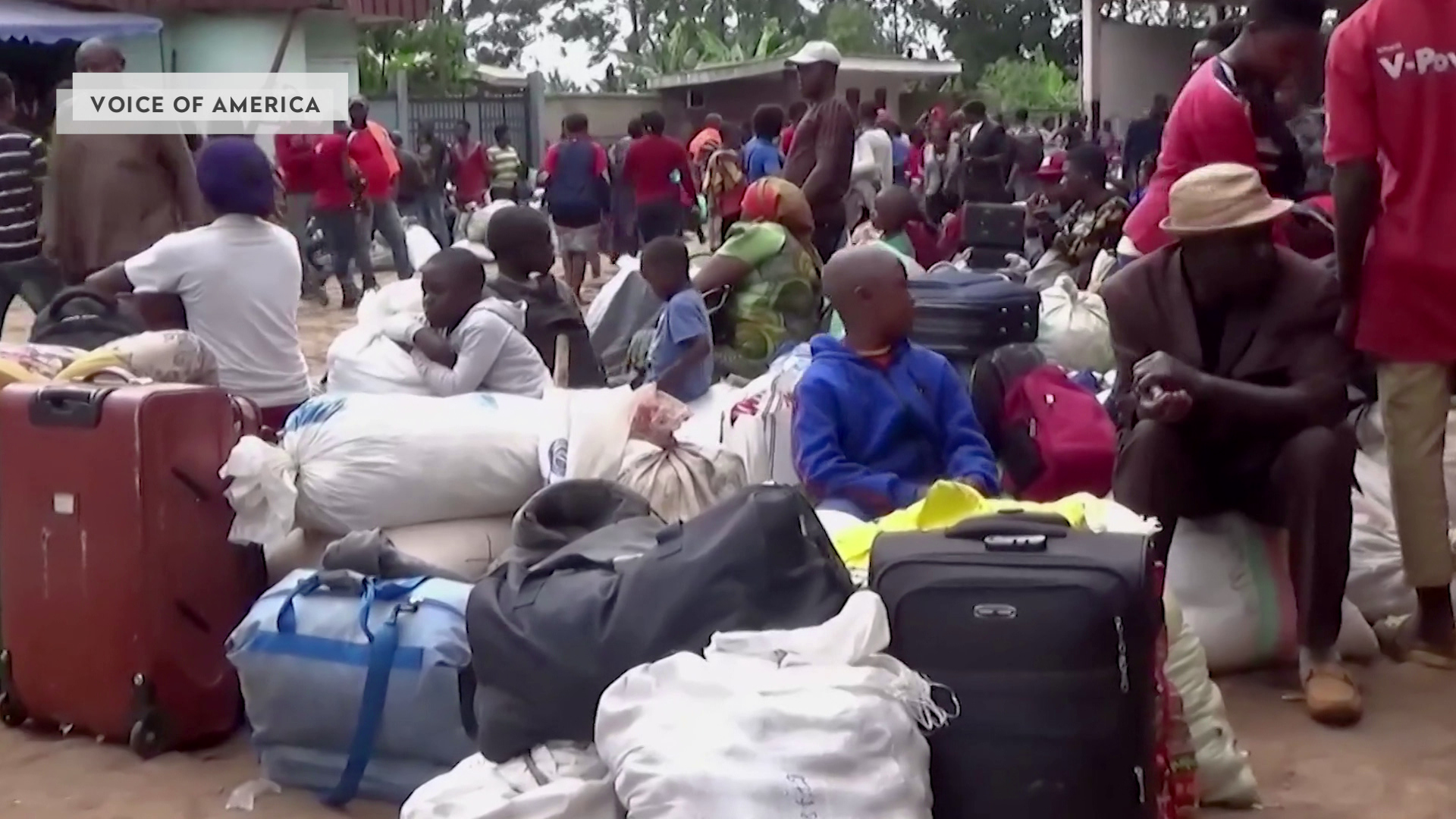
Political unrest in Cameroon, including due to the ongoing Anglophone Crisis, has led to the displacement of large numbers of its citizens. (Credit: Courtesy of Voice of America)
More and more, people like Augustine have stood up against the government, risking arrest and torture. Ngwa’s wife and daughter assumed he had died in detention.
What they didn’t know is that in 2019, he escaped through Nigeria and fled to South America, starting in Ecuador and traveling north through the Darien Gap, one of the most dangerous places in the world. Over thousands of miles and through eight countries, he reached Mexico.
“I look like I’m kind of a different human being. I come from a different world,” said Augustine. “I was under a lot of police discrimination. I said, ‘Oh, this was simply what I’m running away from.'”
His journey was harrowing, taking a toll physically and emotionally.
“I’ve not talked to my family for all the time I was traveling,” Augustine said. “At that time, my distress and emotion was going on.”
Finally, he arrived at the U.S.-Mexico border.
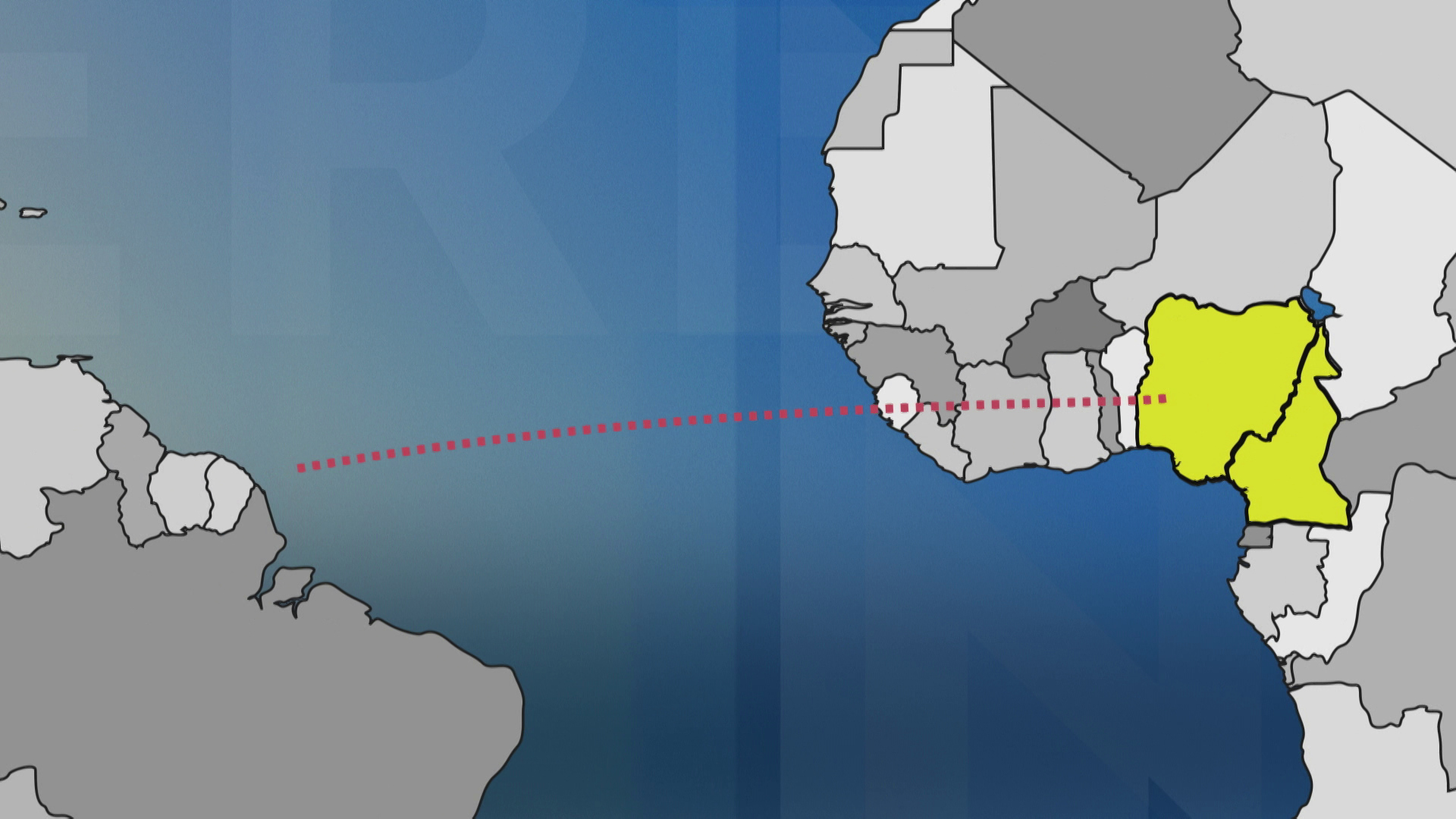
Ngwa Augustine started his journey in Nigeria, after fleeing detainment in Cameroon. (Credit: PBS Wisconsin)
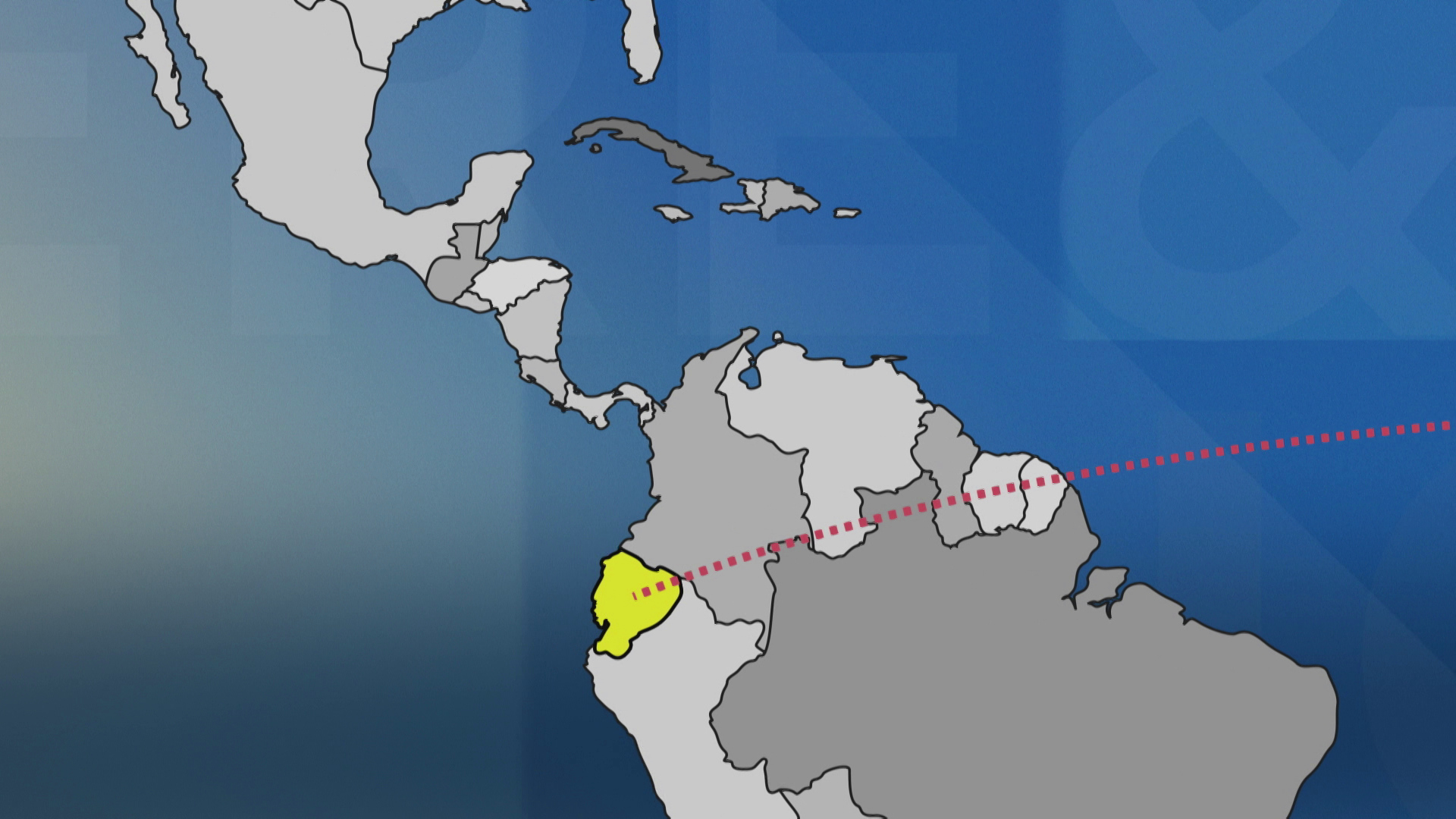
Ngwa Augustine arrived in Ecuador from Nigeria. (Credit: PBS Wisconsin)
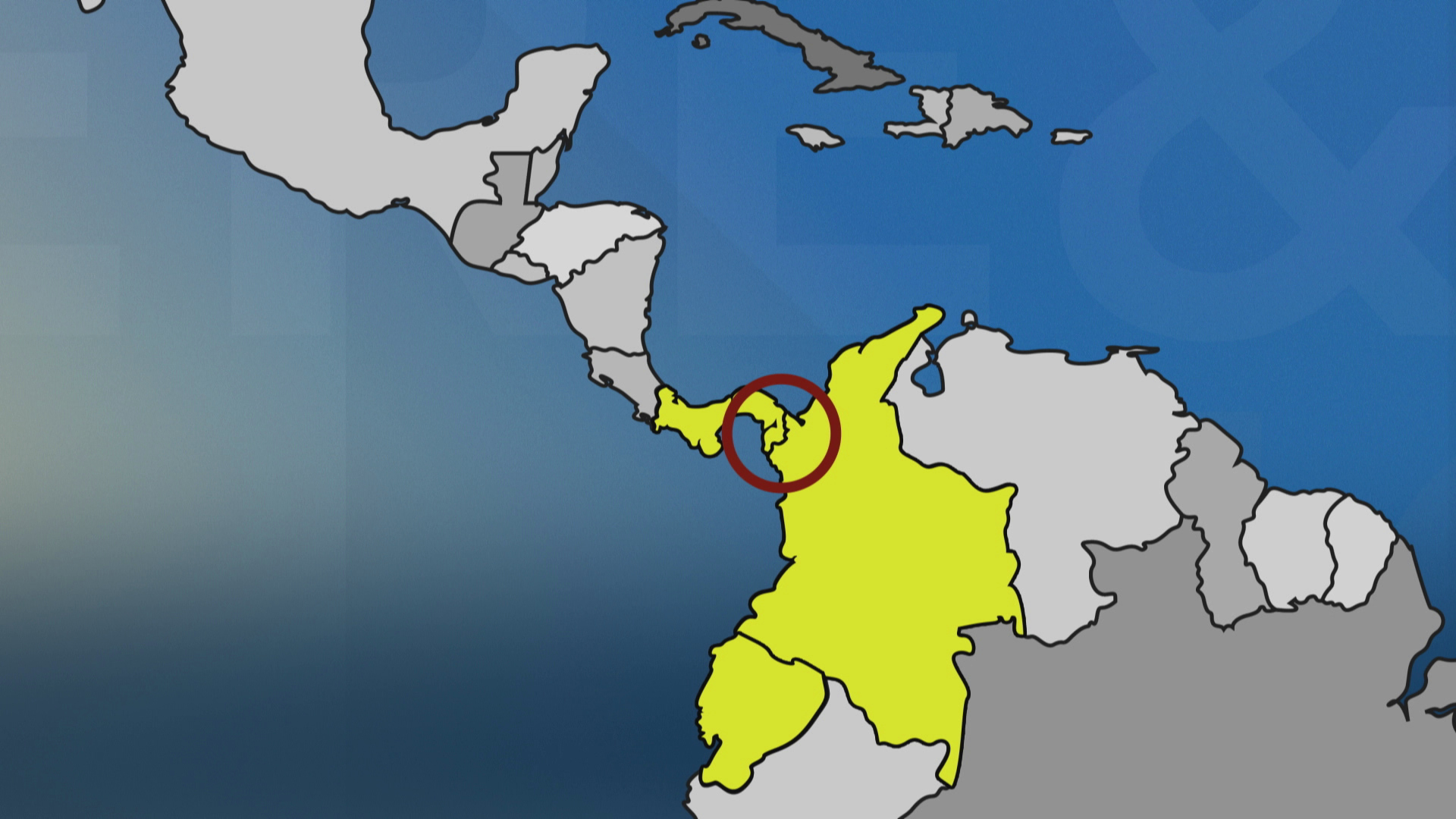
Ngwa Augustine traveled north from Ecuador through Colombia and into Panama, through the Darien Gap. (Credit: PBS Wisconsin)
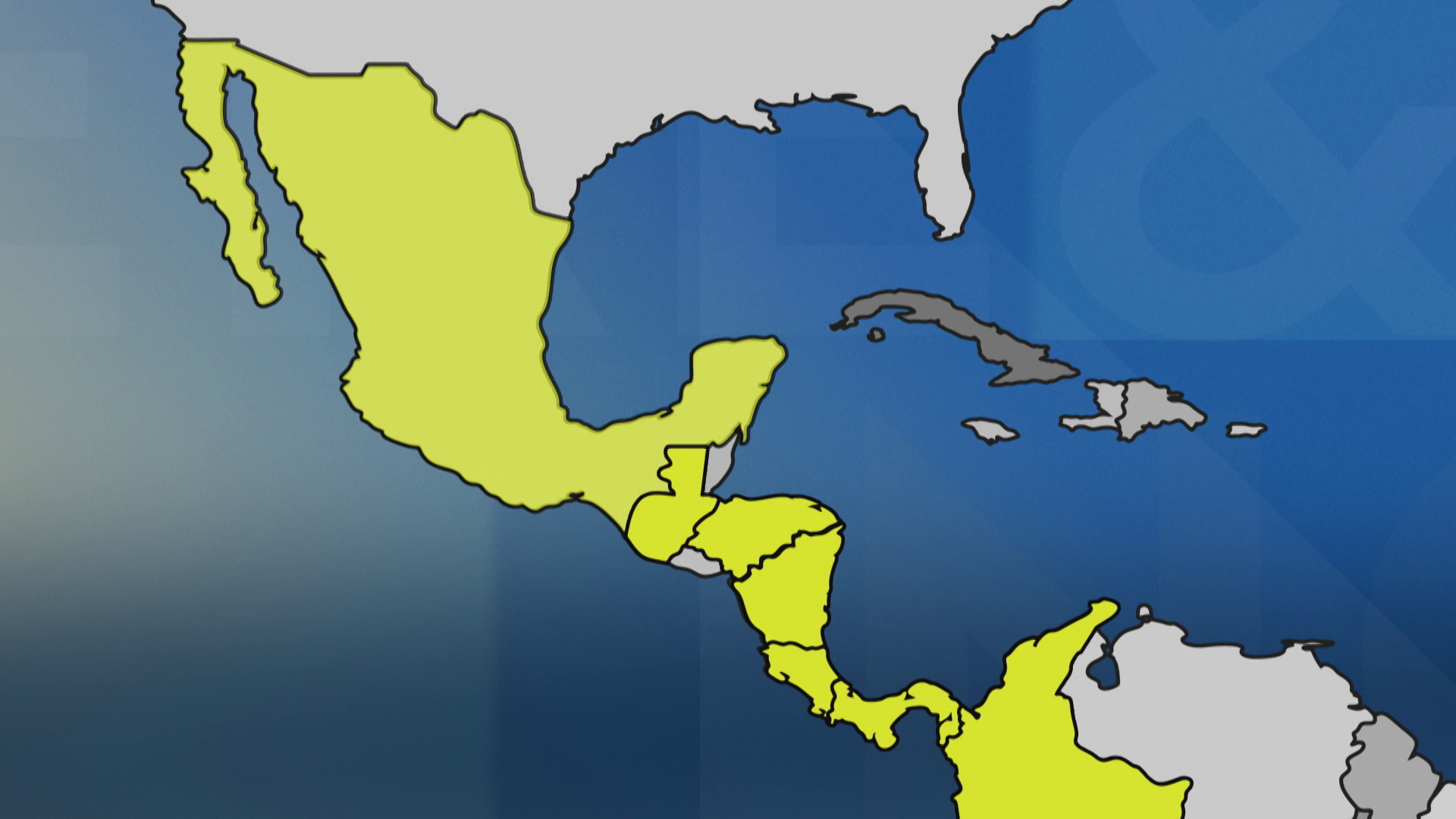
Ngwa Augustine traveled through multiple central American nations before reaching Matamoros, Mexico, located across the U.S. border at Brownsville, Texas. (Credit: PBS Wisconsin)
“So, you don’t know, understand what I’ve been through to get to cross this very border. When I think of what I’ve been through to get to this point, it was — I can’t even, I can’t even find the right word to describe it,” he said. “When I got into U.S. immigration, I thought, ‘I’m safe.’ I feel relieved.”
That relief, however, turned to regret, as he questioned if leaving for the U.S. was the right decision.
“When they took me to the detention — I didn’t commit any crime. Why are they taking me to this place?” said Augustine.
He thought seeking asylum meant being protected in the custody of the U.S. Instead, he was arrested like a criminal.
“I have never been to prison,” he said. “I have never committed any crime in my life apart from being, I mean, protesting in my home country.”
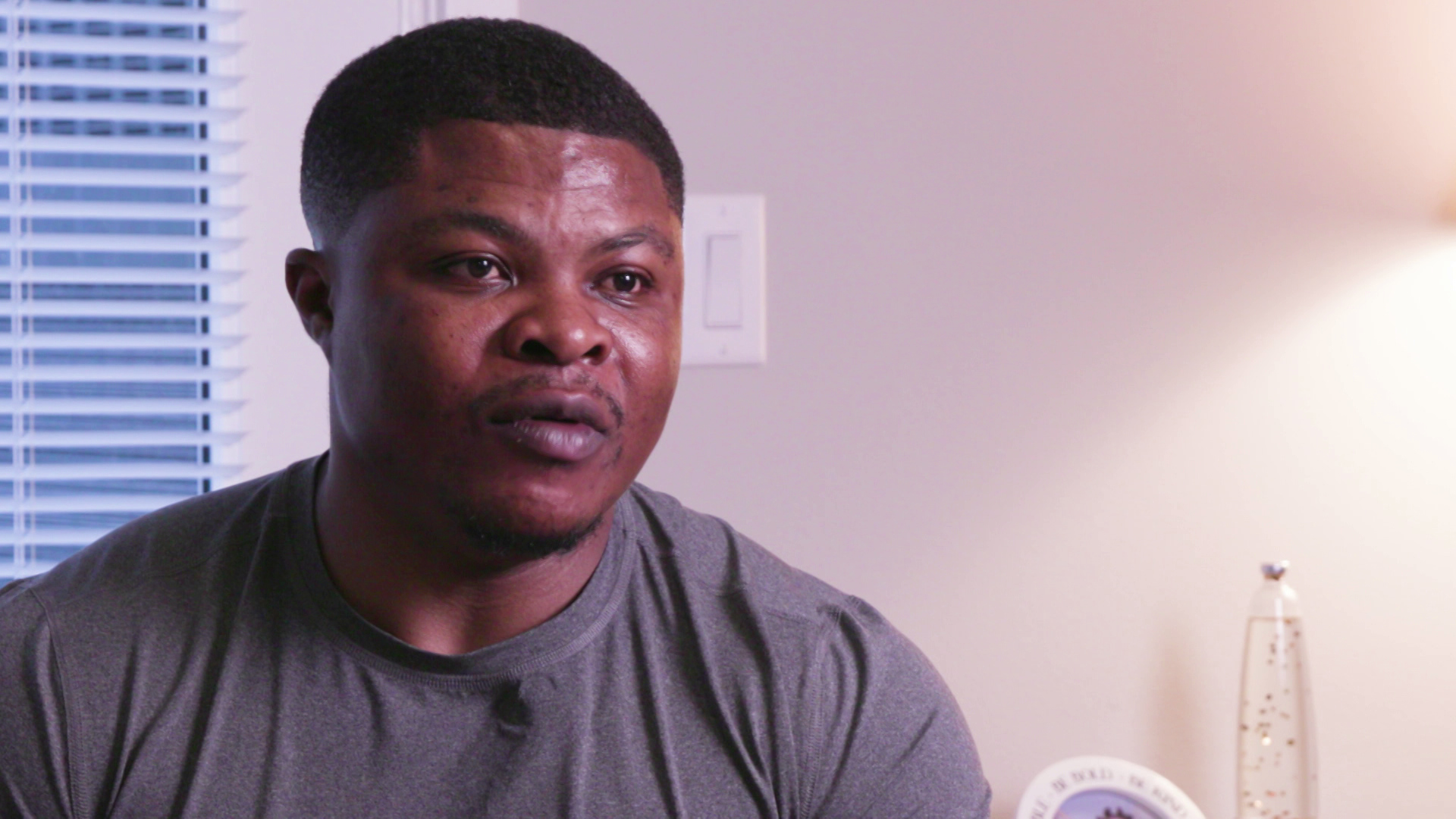
Ngwa Augustine, an immigrant from Cameroon, discusses his journey from fleeing political persecution in his home country to receiving asylum in the United States. “So, you don’t know, understand what I’ve been through to get to cross this very border. When I think of what I’ve been through to get to this point, it was — I can’t even, I can’t even find the right word to describe it,” Augustine said. “When I got into U.S. immigration, I thought, ‘I’m safe.’ I feel relieved.” (Credit: PBS Wisconsin)
And U.S. immigration officials told him nothing.
“I thought I was in Chicago because I didn’t know where I was,” Augustine said.
Weeks later, Augustine found out he was in a federal detention facility in Dodge County in southeastern Wisconsin.
“This is a humanitarian issue,” said Erin Barbato, director of the Immigrant Justice Clinic at the University of Wisconsin Law School. Augustine said everything changed when he met her.
“They’re risking their lives because they have no other choice,” Barbato said. “We have laws that allow people to seek protection here when they will be persecuted or have been persecuted in their home country.”
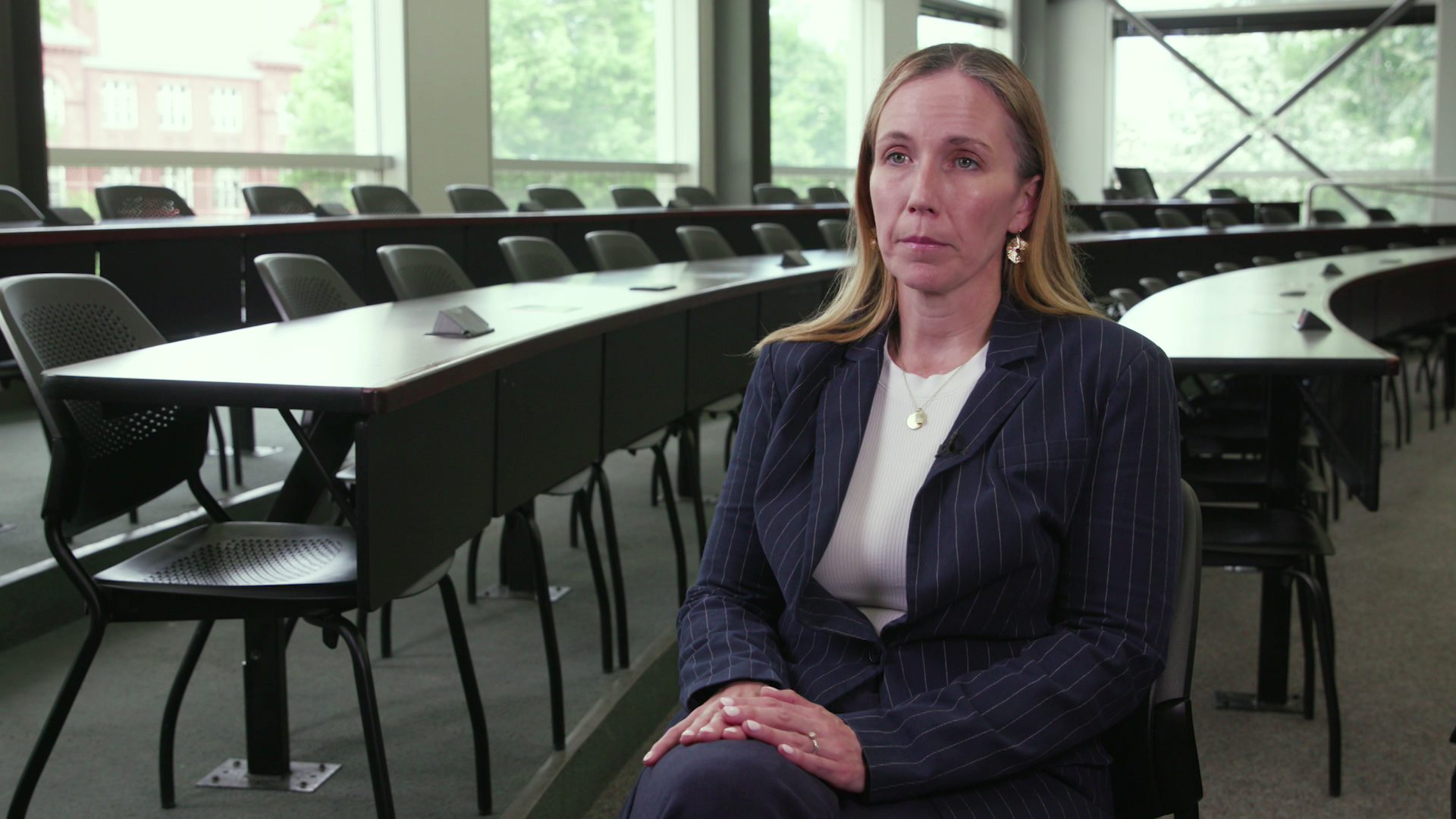
Erin Barbato, director of the University of Wisconsin Law School’s Immigrant Justice Clinic, discusses political asylum in the United States. “They’re risking their lives because they have no other choice,” Barbato said. “We have laws that allow people to seek protection here when they will be persecuted or have been persecuted in their home country.” (Credit: PBS Wisconsin)
Seeking asylum is one issue. But proving a case is another. Augustine’s witness accounts attest to the chaos in his country.
“He also wears scars on his body that we were able to demonstrate were linked to the persecution that he suffered from the government,” Barbato said.
“Obviously our backgrounds are really different,” said Toni Swandy, a resident of Madison. “But, values and belief systems and all that — we have so much in common.”
Toni and Mark Swanby met Ngwa through Barbato. Ngwa went to live with them after leaving the Dodge County Jail on parole. They became his “American parents,” giving him a place to call home.
“Having Ngwa in our life now has been a real blessing to us. We’ve inherited another family, if you will, or found family,” Mark Swandby said.
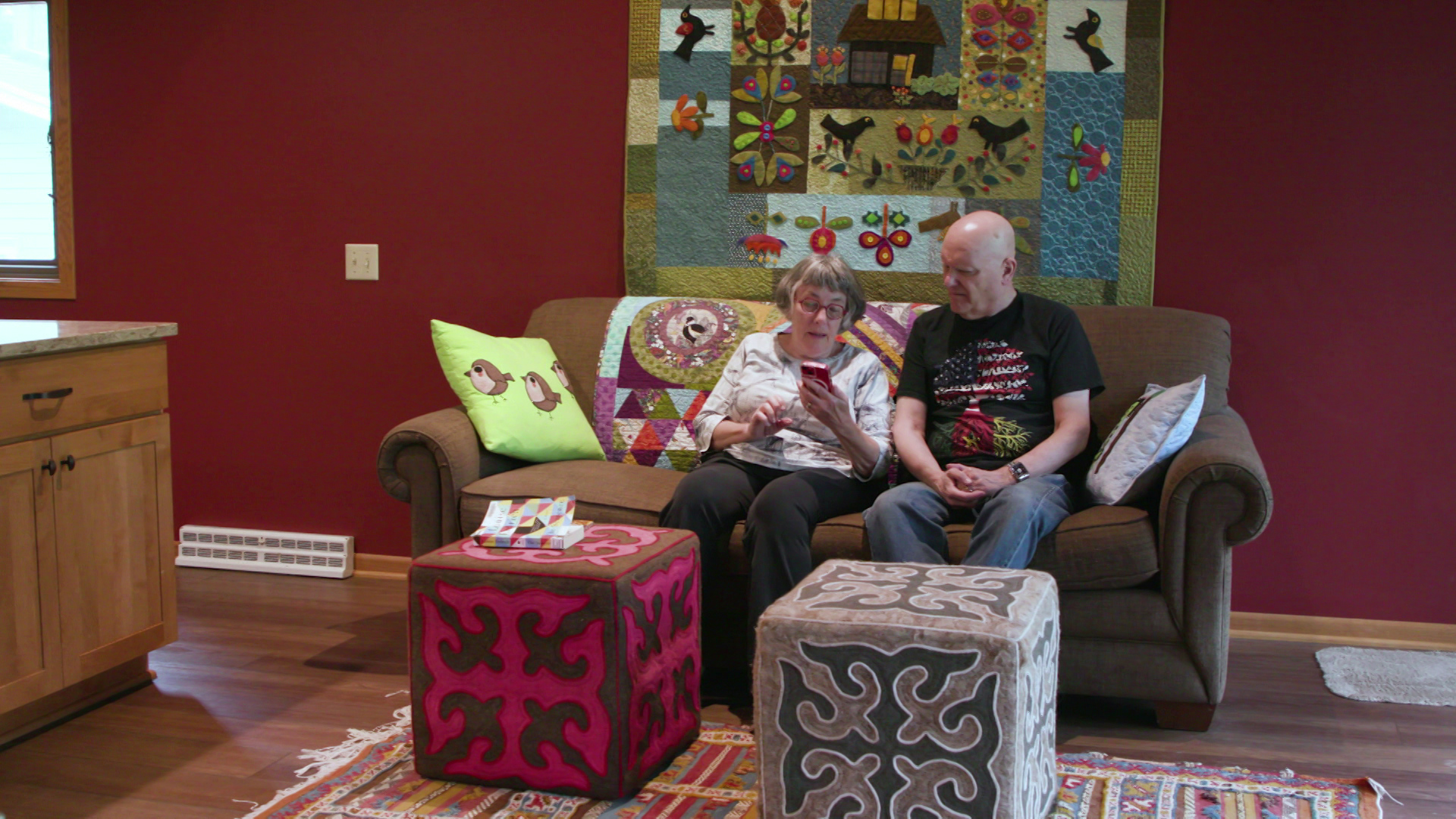
Mark and Toni Swandby, Madison residents who sponsored Ngwa Augustine, discuss how meeting the asylum seeker from Cameroon impacted their lives. “Having Ngwa in our life now has been a real blessing to us. We’ve inherited another family, if you will, or found family,” Mark Swandby said. (Credit: PBS Wisconsin)
After four long years, Ngwa’s wife Stella and their five-year-old daughter Ann flew to the U.S. in 2023, and received their documents to enter. The family made their new home in Middleton, a suburb of Madison.
“I was just like, ‘Is this for real?’ I might — yeah, I was in shock when I saw him. I was so happy,” Stella Augustine said.
“To make a life here in the U.S. and what they’ve been through and what they’re going through is just a hard thing,” said Mark Swandy.
In June, Ngwa Augustine graduated from UW-La Crosse with a Master of Healthcare Administration degree. After years of hardship, he received formal asylum status in 2021 and now is applying for U.S. citizenship.
Stella and Ann await their green cards. In the meantime, it means everything to Ngwa to start a new life in Wisconsin.
“It’s a beautiful thing for the family to be reunited,” he said. “I think we’re really happy, and we’re looking forward to more amazing things.”
 Passport
Passport




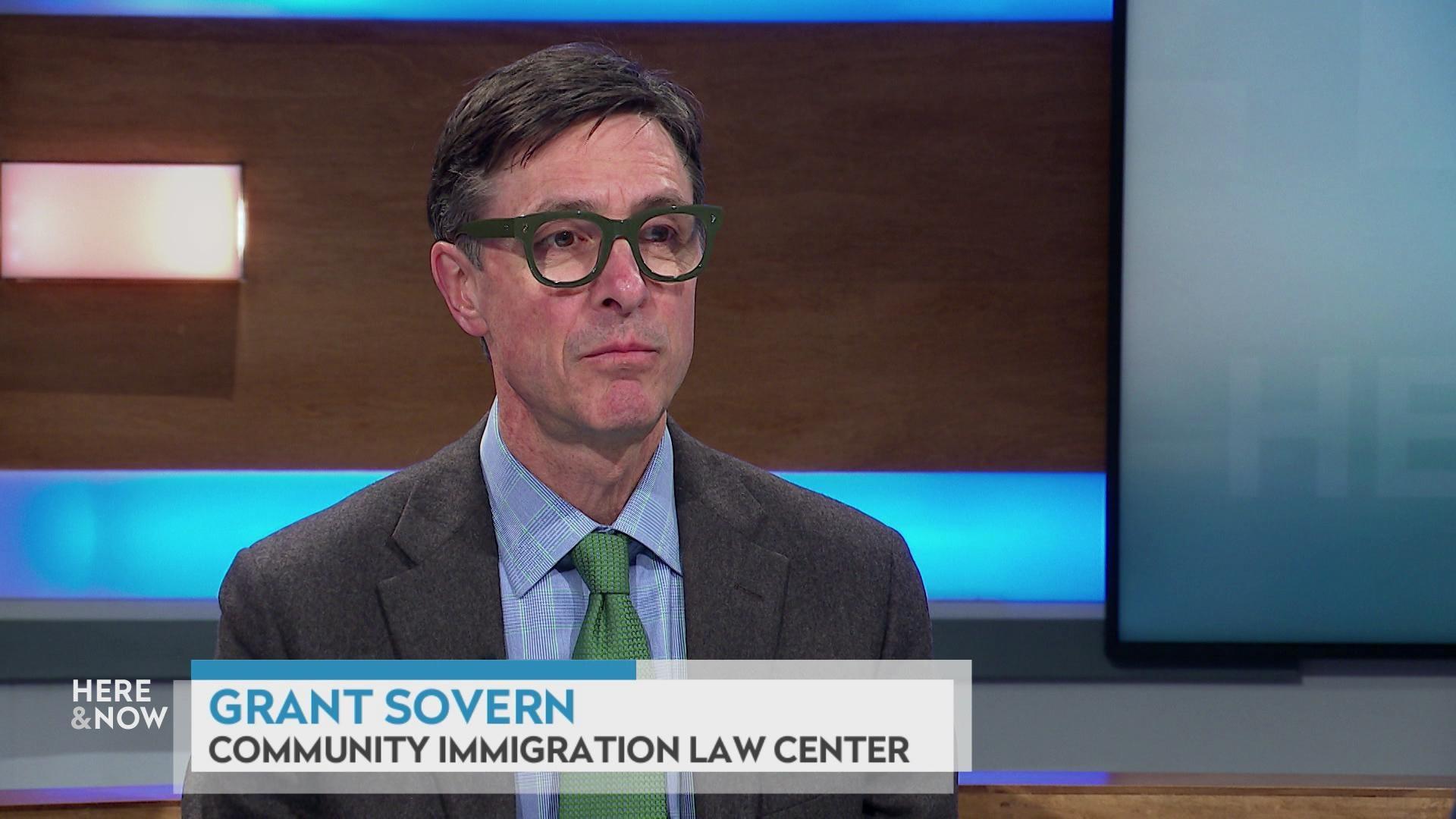
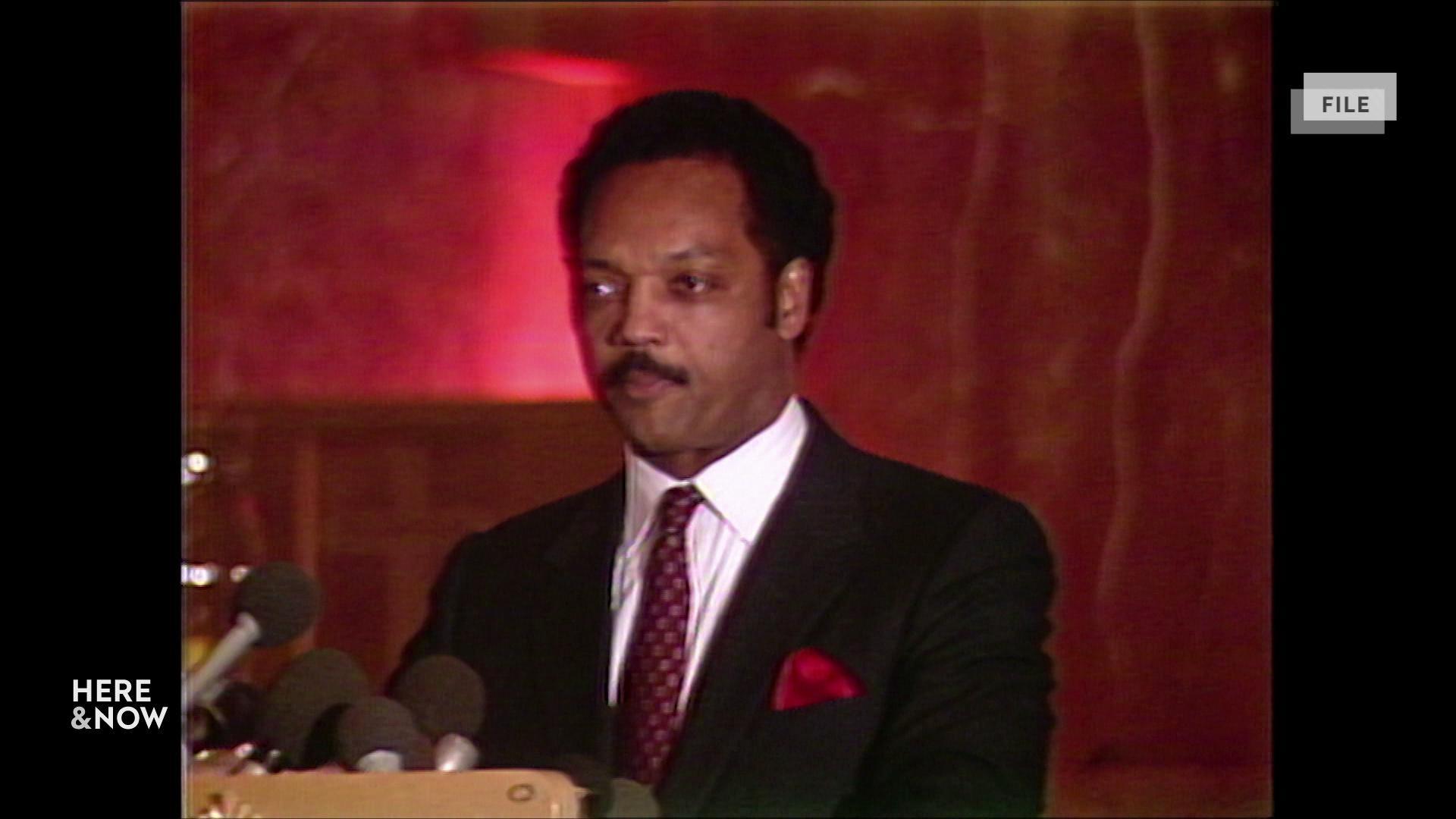
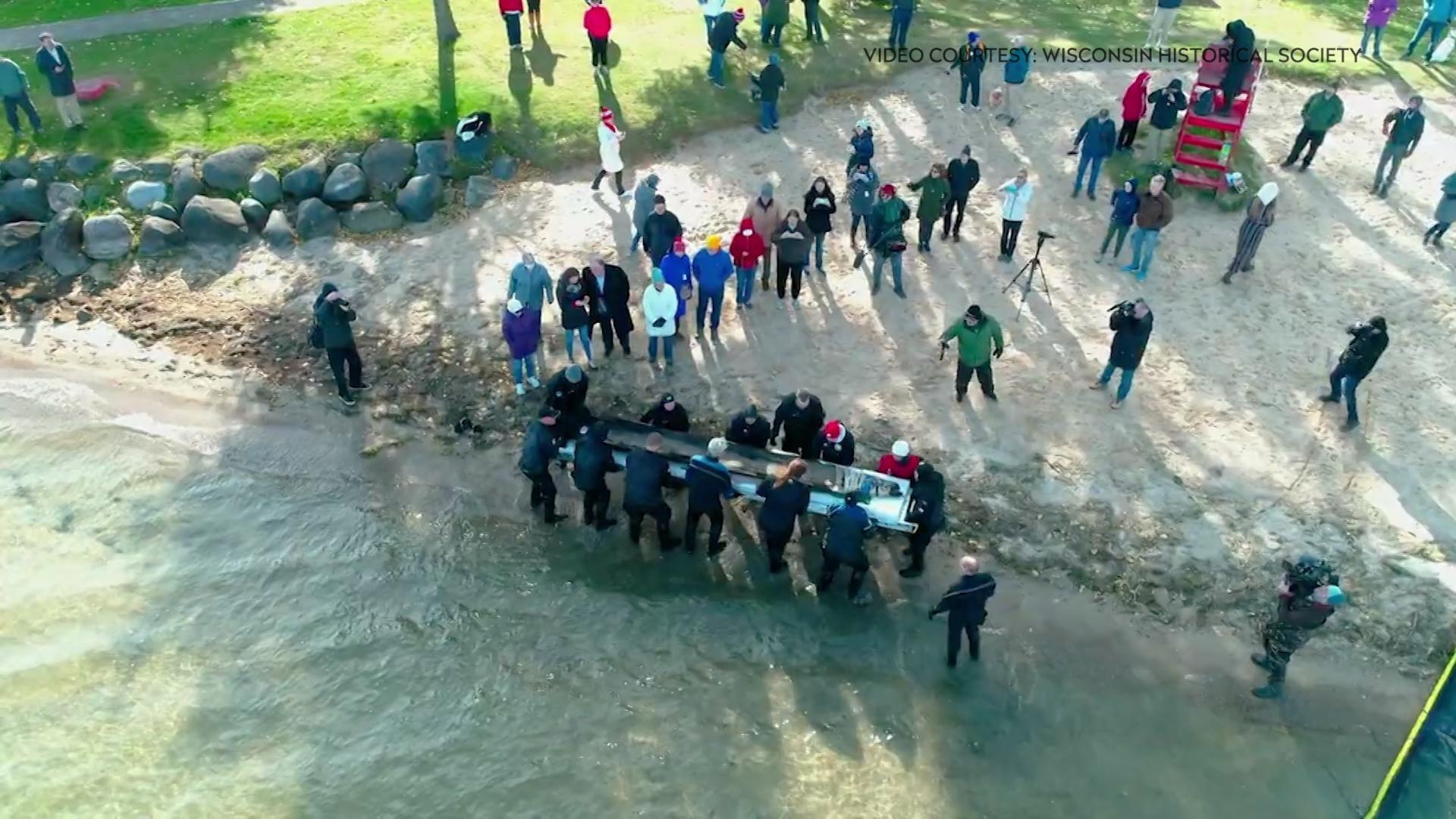
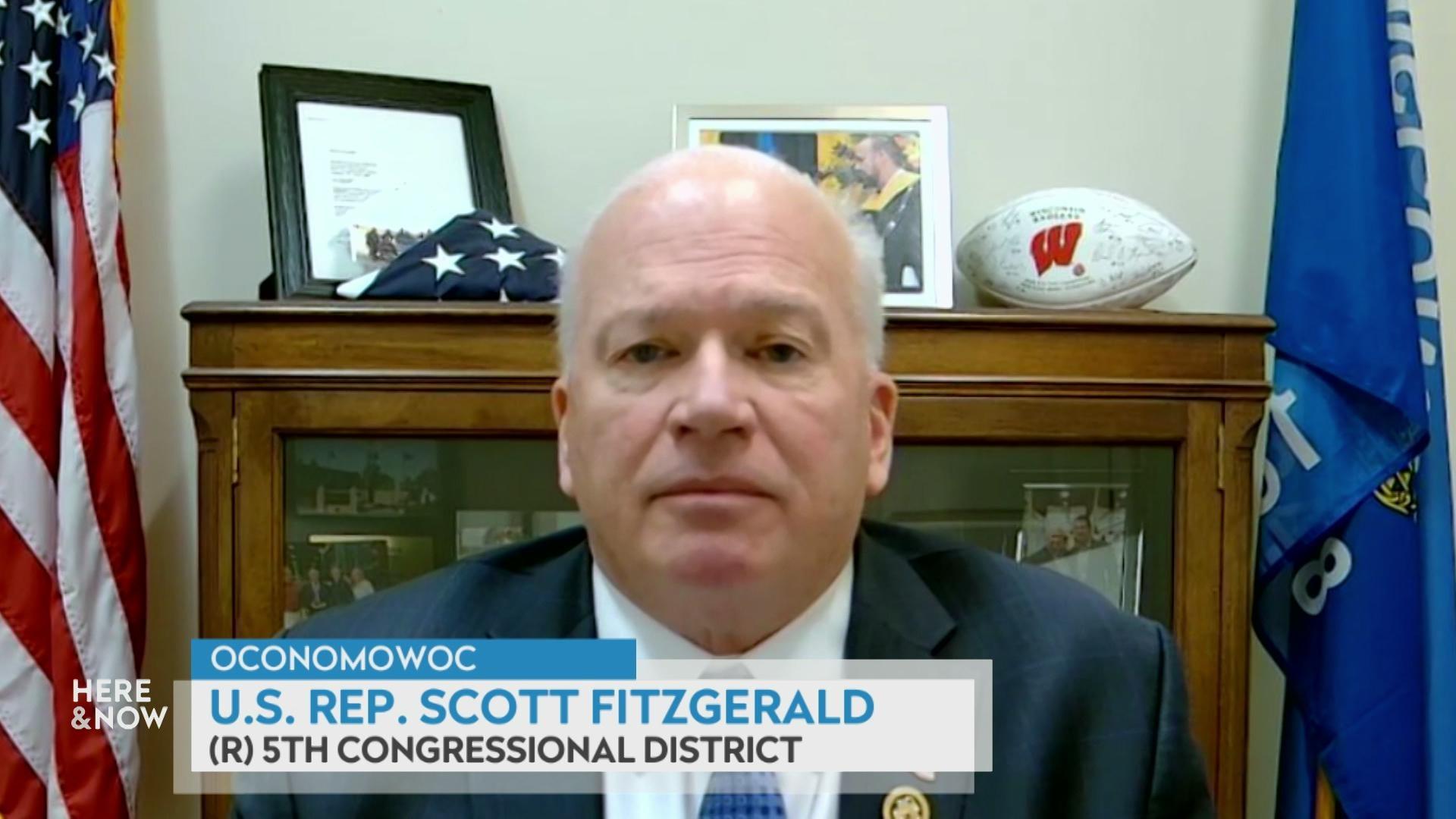

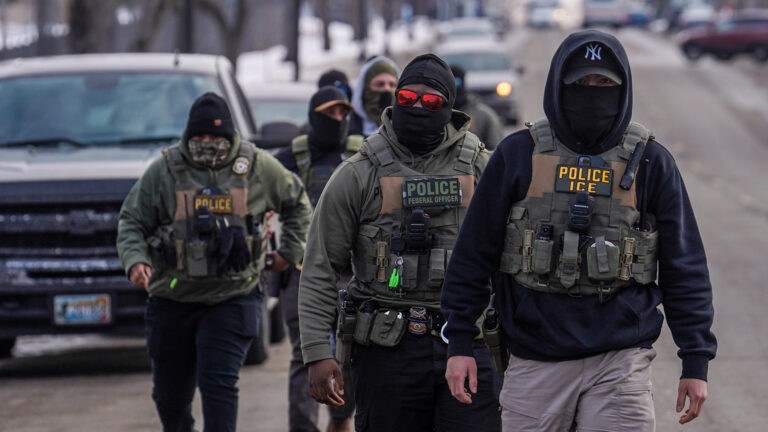

Follow Us